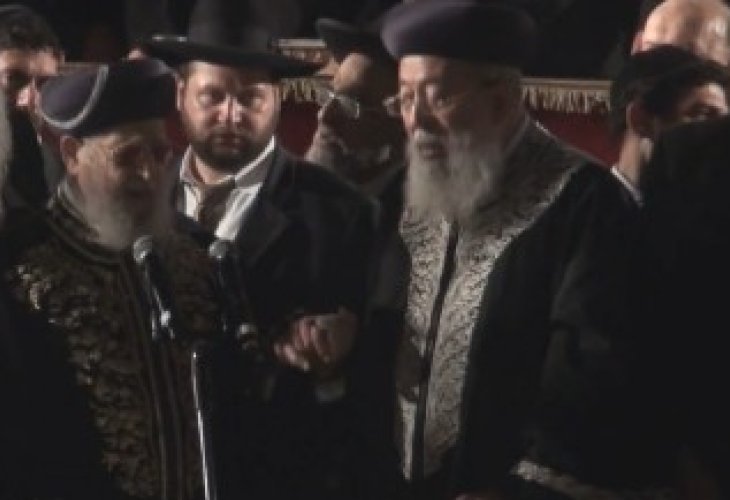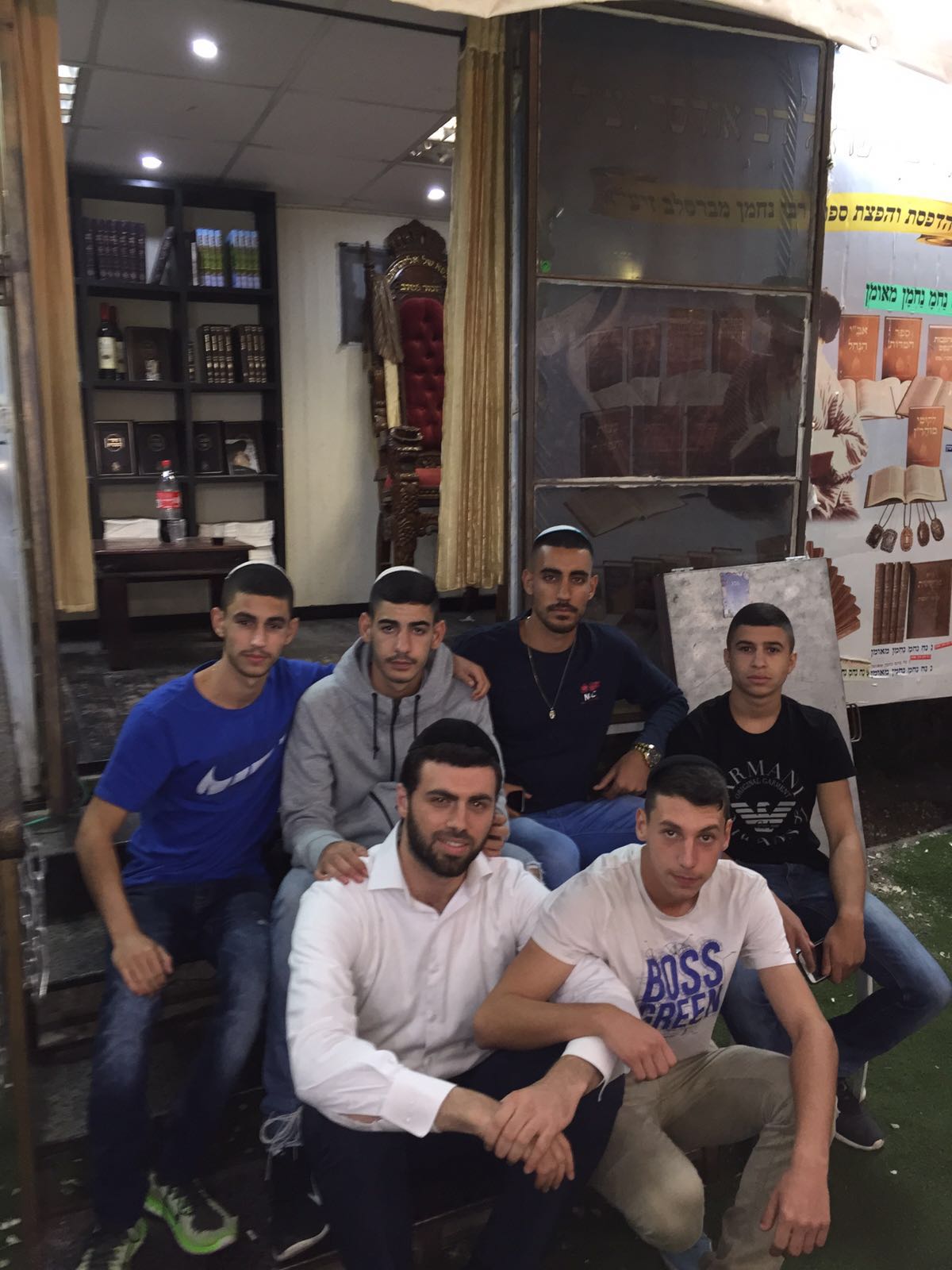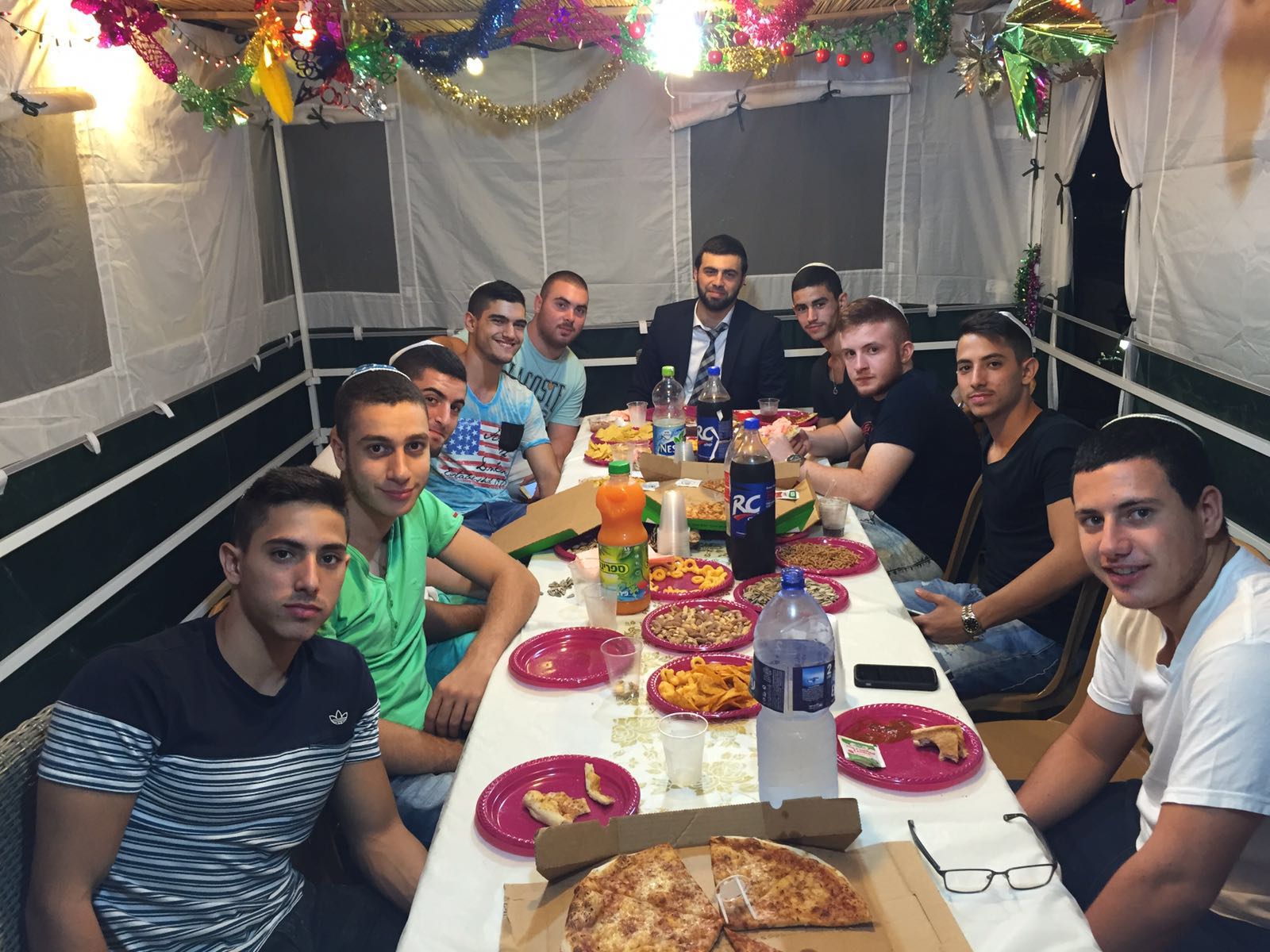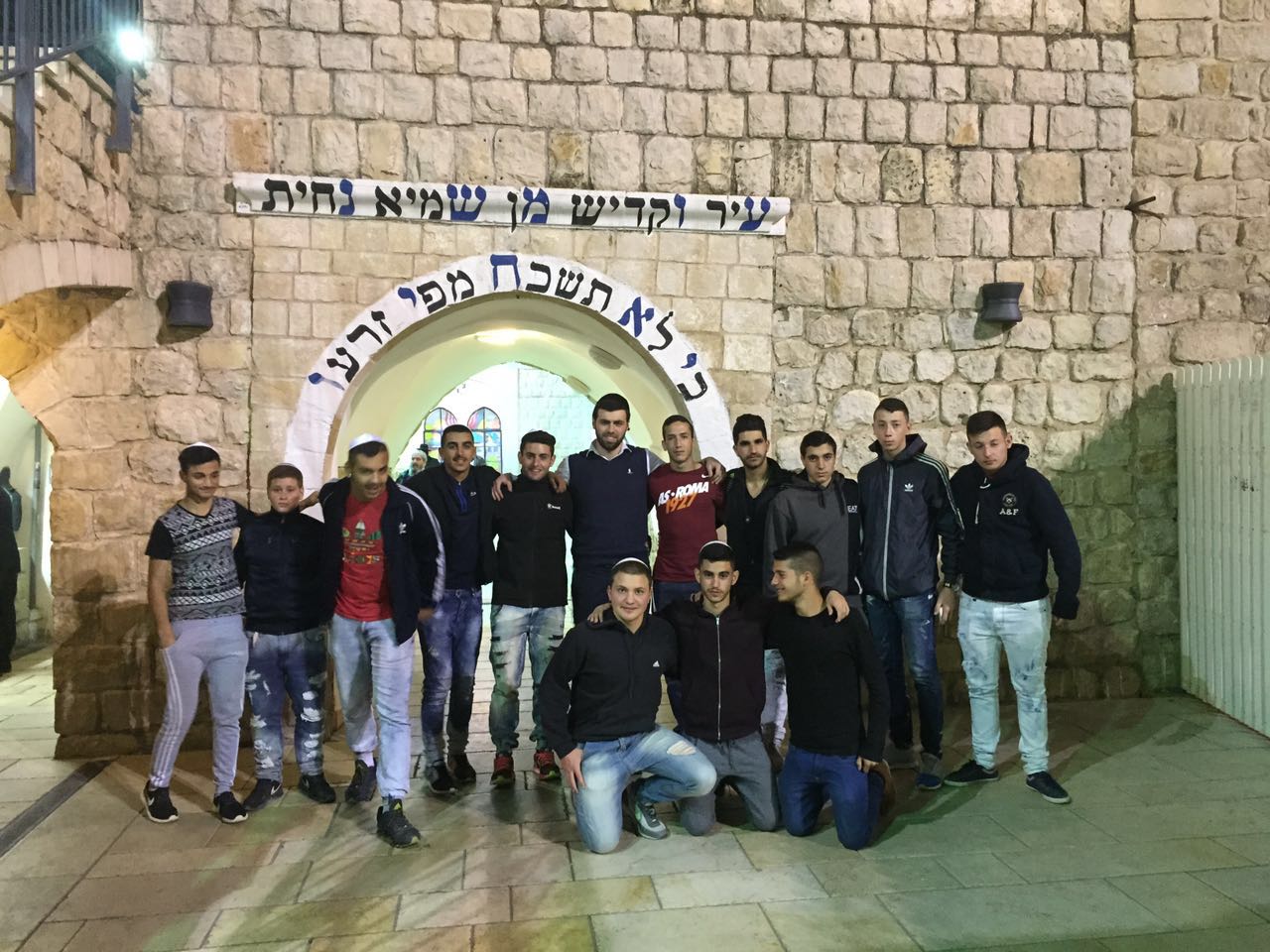From Secular Teen to Revered Rabbi: The Transformation of Lonya Rubinstein
From attending a local midrash, Lonya Rubinstein's life changed as he embraced Jewish faith, influenced friends, and founded a synagogue at his secular high school. Today, he runs the 'Or Israeli' club in Kiryat Tivon, engaging numerous teens.
 Lonya Rubinstein with Rabbi Yitzchak David Grossman
Lonya Rubinstein with Rabbi Yitzchak David GrossmanIf you happen to visit Kiryat Tivon, a northern (and secular) community, on a Shabbat morning, you would likely be surprised to hear the sounds of Zmirot Shabbat emanating from one of the shelters. These sounds starkly contrast with the bustling and secular air of the streets, as they belong to no less than 50 teenagers attending the 'Or Israeli' club. There, they nourish themselves, sing hymns, and even hear Torah insights.
But the real surprise lies in the person leading this initiative - none other than Lonya Rubinstein, who hails from a secular Russian home. The transformation he experienced in his life led him to his decision: to bring as many teens as possible closer to Judaism and show them the immense light it contains.
Searching for the Light
"It all started when I was fifteen," Lonya tells us. "A friend suggested I visit the 'Or Israeli' club that opened in my town (Migdal HaEmek). There was a Purim party there that day and the friend asked me to join him. I came to the party exactly when Rabbi Yitzchak David Grossman was speaking. I listened to him and was simply enchanted. He spoke to us with great taste, and his warmth and love captivated my heart."
Of course, at this stage, Lonya had not yet considered returning to faith. "But it was the point where I transformed from anti-religious to someone who began to appreciate religion a bit," he explains. "I realized that if the Torah could make people as charming and special as Rabbi Grossman, then this is the Torah I want to be part of."
For a year and a half, Lonya progressed in measured steps. "I made friends with a few guys, and together we started visiting the club twice a week, listening to Torah lessons, and asking all the basic questions that came to our minds. We certainly received answers too."

Lonya also visited the club on Shabbat, soaked up the atmosphere, and slowly found himself deeply embedded in the process of returning to faith. "What helped me greatly in the way to Judaism was the fact that I had friends who went through the same process with me, becoming a cohesive group, and constantly encouraging each other."
And how did your parents react to your growing faith?
"The truth is that while at home, I initially tried to conceal the fact that I was strengthening my faith. I only put on the kippah when I went out and hid the tallit. But one day my parents noticed and asked: 'What is this?' I explained to them that I was growing stronger and they were shocked. That moment sparked arguments, which escalated to 'pack your things and leave the house.' But that was only in the most extreme times. Mostly, my parents were forgiving and eventually made peace with the reality."
The Decision: Opening a Synagogue
In the classroom, however, things were tougher for Lonya. "On the first day I courageously stepped into class wearing a kippah, I faced a lot of ridicule and scorn. But after I took the leap, my friends who were also strengthening their faith joined in wearing kippahs, and suddenly it became trendy."
And what was the reaction of the teachers?
"The teachers tossed a comment or two, but we tried to create Kiddush Hashem and behave as expected of someone with a kippah on his head. I must also admit that until that moment, I was quite a problematic student, and ever since I strengthened my faith, I changed for the better. So, the teachers weren’t bothered. I remember one teacher telling me, 'I don’t care about your faith as long as you’ve become a decent person.'"

But Lonya wasn’t satisfied with just that. "From the moment I began to draw near, I constantly looked around thinking, 'Where I am and where my friends are.' It felt like just as others helped me, it was my duty to try to save others."
This led to the unprecedented feat of establishing a synagogue within the secular high school he attended. "At first, I brought a pair of tefillin to class and started putting them on my friends. Later on, I saw more boys taking interest, so I brought four pairs of tefillin. At a certain point, I received permission from the school principal to obtain a special shelter for the synagogue. To this day, the synagogue is active with about 60-70 boys praying daily. On some days, there’s even a women’s section for the female students."
On to the Yeshiva
Until the 13th grade, Lonya continued studying at the secular high school, majoring in electronics, which delayed his military enlistment until the end of the 13th grade. However, by the end of that year, plans changed. "I decided to study at the Kiryat Malachi Yeshiva," he dropped the bombshell.
This was a very significant decision, as even though he had studied for two years at the Or Israeli club, he hadn’t yet acquired real knowledge of the Talmud and study methods. Transitioning to a yeshiva wasn’t easy at all. "But I had very big and strong aspirations, and I believe that’s what helped me progress. I jumped into the water and started swimming," he recounts.
For three and a half years, Lonya studied at the yeshiva, acquiring many tools both in studies and spiritually. He later married and was blessed to build a home with a woman who also returned to faith.
"The amazing thing is that I met my wife during my high school years, as she was one of the students in my grade. When we established the synagogue, she began praying there and later drew closer to Judaism through studies at the midrash. We both underwent the process of returning to faith concurrently, and about two and a half years ago, we fulfilled our dream and established our home. A Jewish home, as we aspired."
The Power of Shabbat
After Lonya’s marriage, he consulted with Rabbi Grossman about where it would be best for him to live. Rabbi Grossman recommended moving to Kiryat Tivon. "There’s darkness there," he told him. "Go give them some light."
Lonya quickly followed the recommendation, and since his arrival in the northern community, he hasn’t stopped spreading light. "It was clear to me from the start that I wanted to open an 'Or Israeli' branch in Kiryat Tivon," he notes, "because I saw how such a club saved my life. And while most of my friends are abroad, some addicted to drugs and some in jail, I have the chance to build a home and family, so it was clear to me I wanted to save souls."

Yet, it wasn’t so simple. "Initially, I tried to establish the club, but only one child attended. I didn’t give up, and later he brought more friends, so within months I had gathered a group of teenagers. Today, we have a shelter provided by the council, and we open it every day for activities and Torah lessons for more than 50 youngsters."
But the highlight is on Shabbat, as Lonya hosts Shabbat meals for all the teenagers who come and want to experience the atmosphere. Together, they gather around the table, dine, sing hymns, and hear Torah words.
Lonya speaks excitedly about one of the boys who attended such a Shabbat: "One Shabbat, a very active and energetic boy came to our branch. He told me he was on his way to the sea, but after seeing the atmosphere here, he decided it would be more interesting to come to the meal. Of course, I was thrilled to hear this."
But Lonya didn’t expect the next surprise: "On Saturday night, the boy called me and said that from the moment he returned home after the meal, he decided he wanted to observe Shabbat. But since he didn’t know how, he simply lay in bed to avoid inadvertently desecrating Shabbat. Since then, he has progressed and learned, and for eight months, he has been observing Shabbat properly."
And what do the parents of these boys say? Aren’t they worried their children might return to faith?
"In general, the parents aren’t opposed to my activity. I think it’s mainly because I try to make the approach gentle and beautiful. I don’t let the boys change all at once, only stage by stage, and always with suitable guidance and pleasant ways."
Still, how do you explain so many teenagers coming to attend Torah lessons?
"Honestly?" he answers after contemplating. "It's hard for me to explain, but based on what I've observed, one thing is clear - every Jew has a pure soul, and it only needs to be exposed to the truth."

